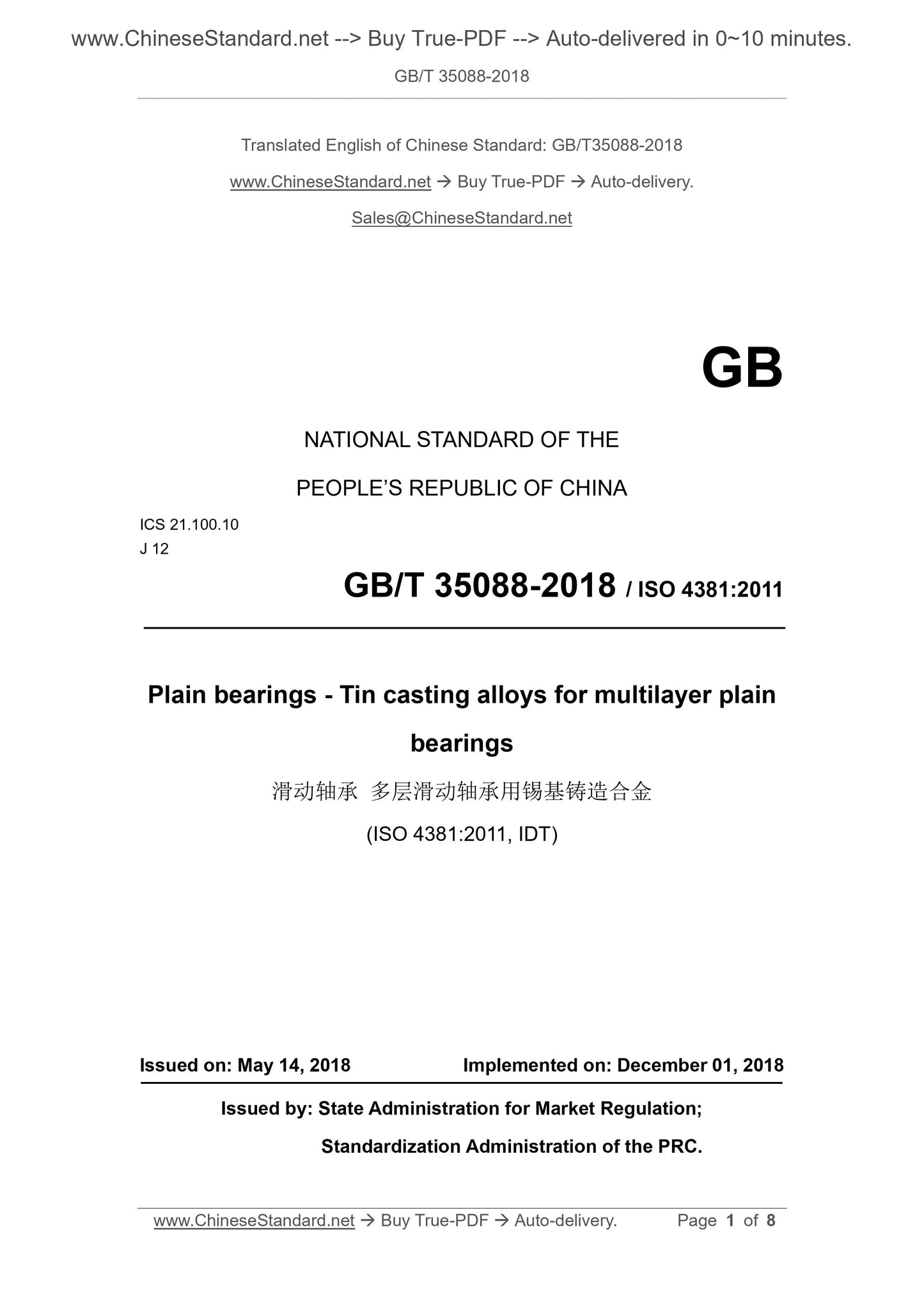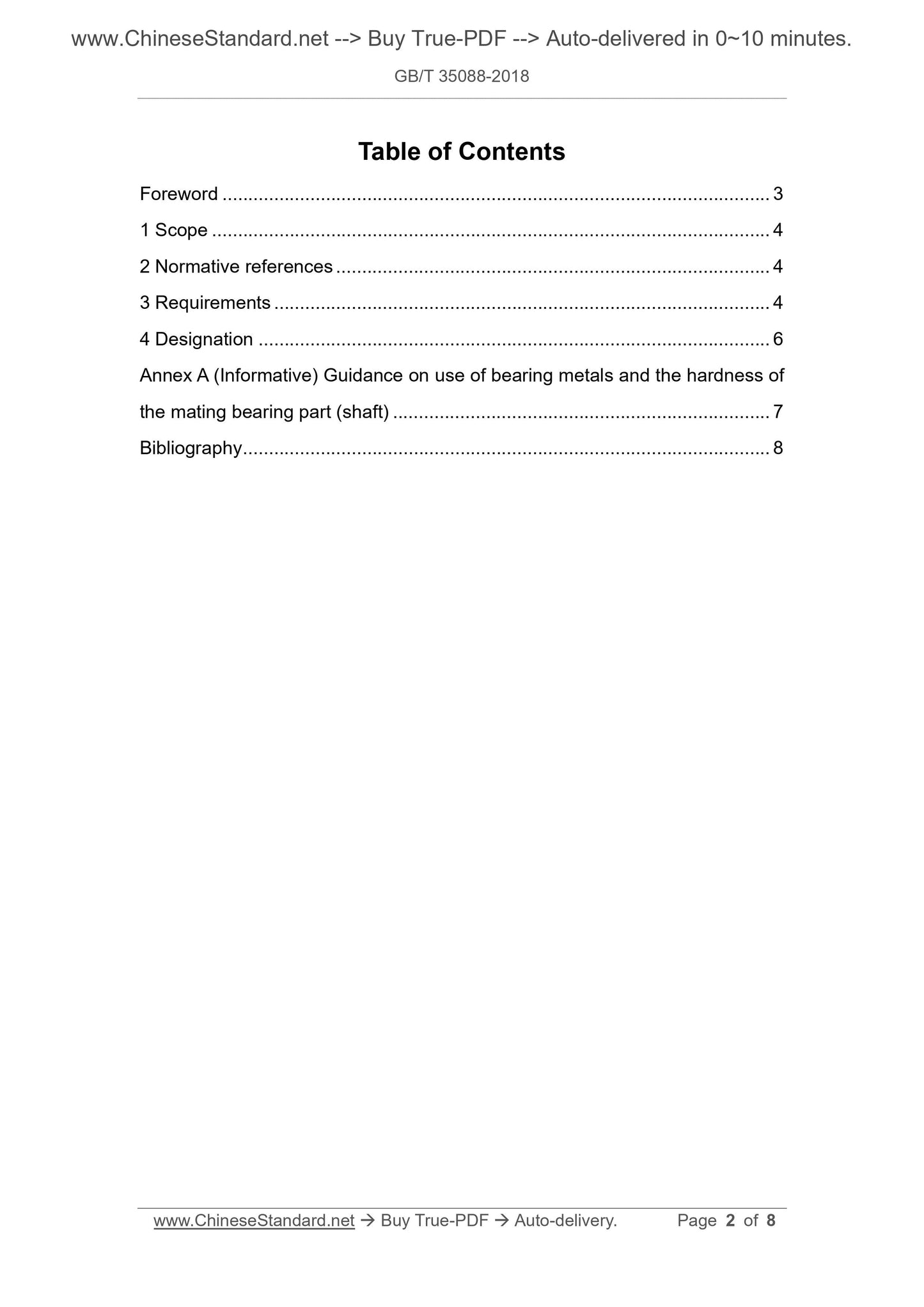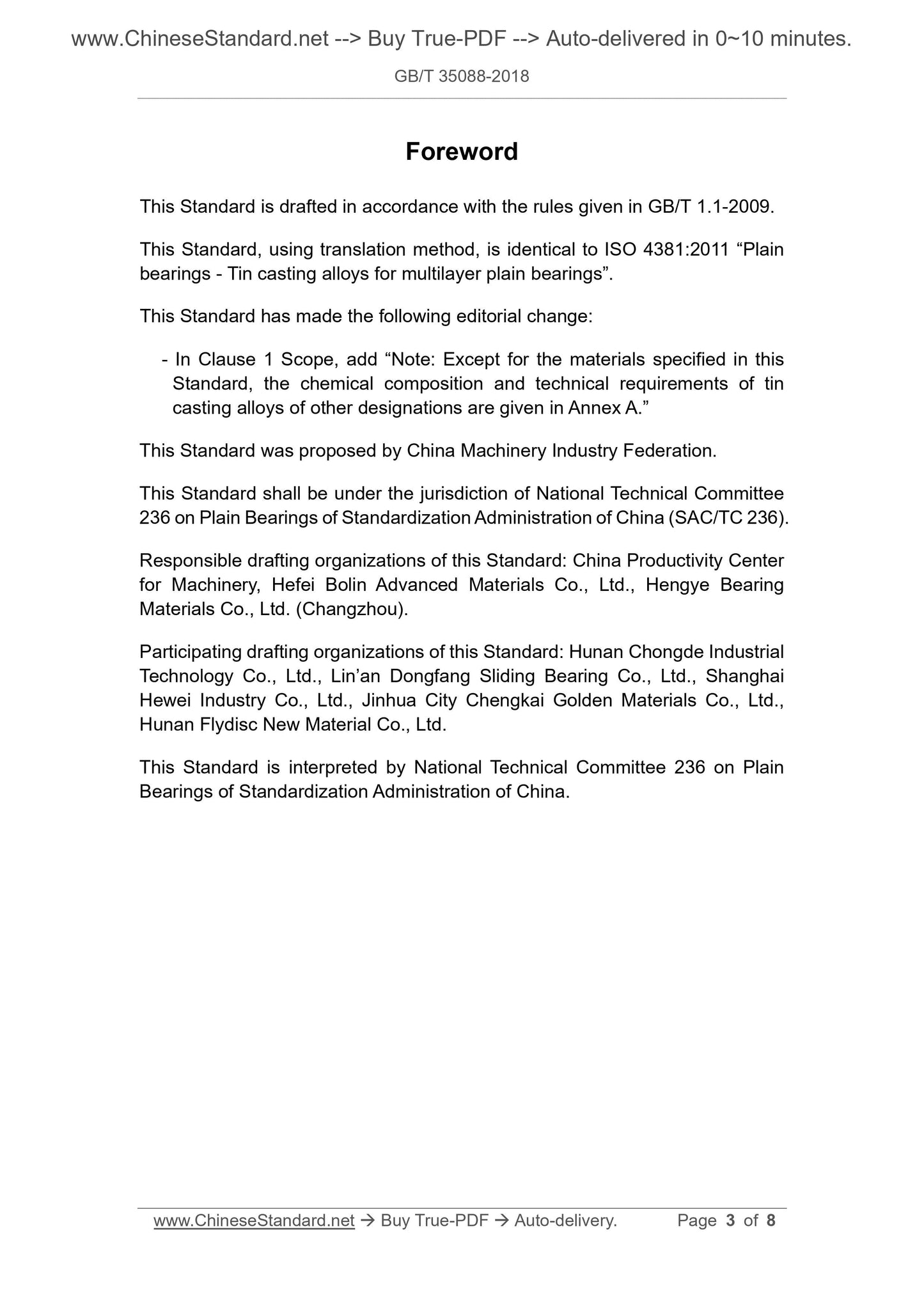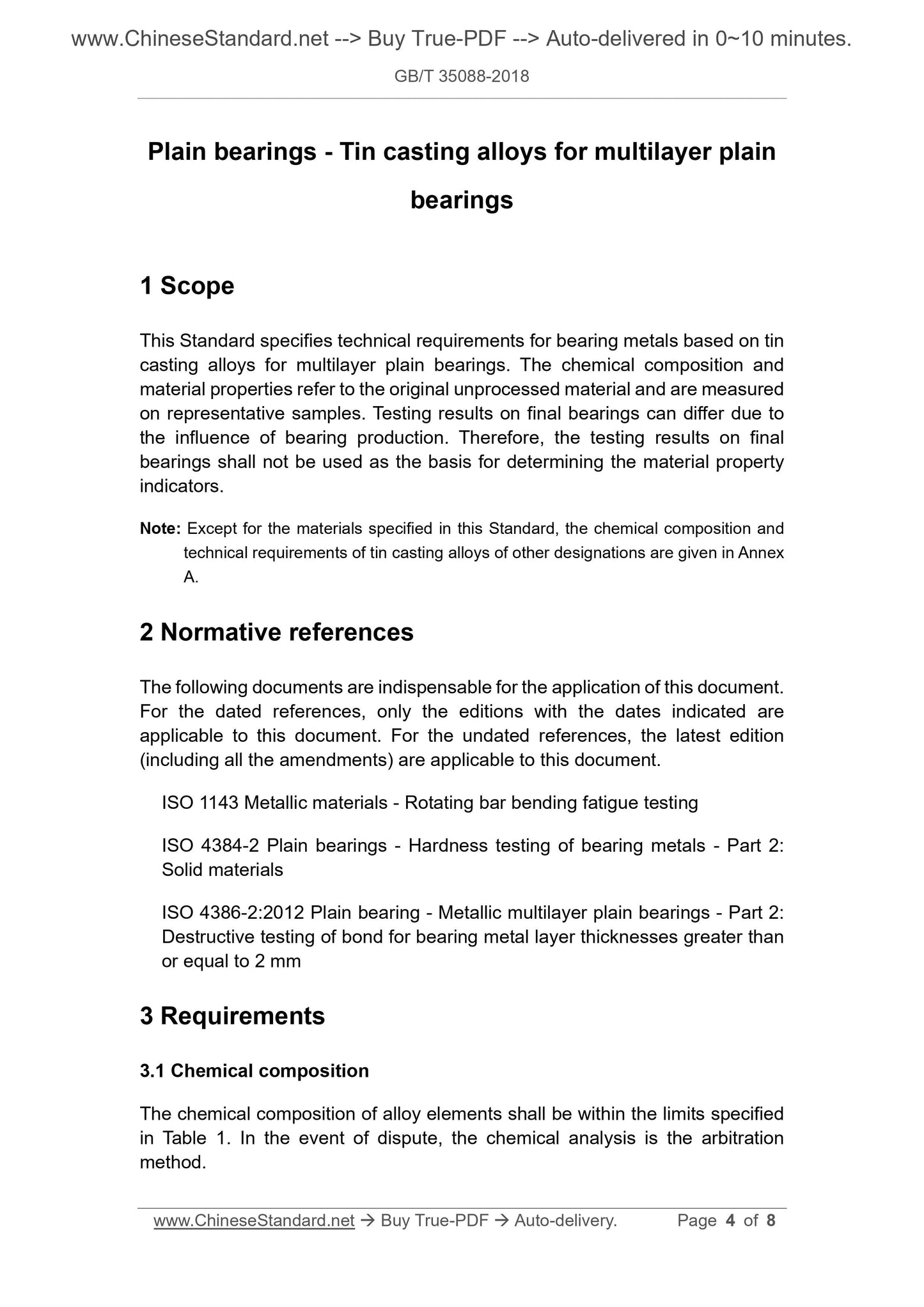1
/
of
4
www.ChineseStandard.us -- Field Test Asia Pte. Ltd.
GB/T 35088-2018 English PDF (GB/T35088-2018)
GB/T 35088-2018 English PDF (GB/T35088-2018)
Regular price
$90.00
Regular price
Sale price
$90.00
Unit price
/
per
Shipping calculated at checkout.
Couldn't load pickup availability
GB/T 35088-2018: Plain bearings -- Tin casting alloys for multilayer plain bearings
Delivery: 9 seconds. Download (and Email) true-PDF + Invoice.Get Quotation: Click GB/T 35088-2018 (Self-service in 1-minute)
Newer / historical versions: GB/T 35088-2018
Preview True-PDF
Scope
This standard specifies the technical requirements for tin-based cast bearing alloys for multi-layer plain bearings. Chemical composition and material properties refer to raw materialsRaw materials should be tested using representative samples. Due to the influence of bearing manufacturing, the test results of finished bearings may be related to the detection of raw materials.
Inconsistent. Therefore, the test results of finished bearings should not be used as the basis for determining the material performance indicators.
Note. In addition to the materials specified in this standard, the chemical composition and technical requirements of other grades of tin-based casting alloys are given in Appendix A.
Basic Data
| Standard ID | GB/T 35088-2018 (GB/T35088-2018) |
| Description (Translated English) | Plain bearings -- Tin casting alloys for multilayer plain bearings |
| Sector / Industry | National Standard (Recommended) |
| Classification of Chinese Standard | J12 |
| Classification of International Standard | 21.100.10 |
| Word Count Estimation | 6,636 |
| Date of Issue | 2018-05-14 |
| Date of Implementation | 2018-12-01 |
| Regulation (derived from) | National Standards Announcement No. 6 of 2018 |
| Issuing agency(ies) | State Administration for Market Regulation, China National Standardization Administration |
Share







